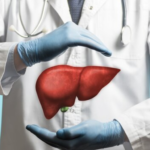
Nutrition plays a crucial role in maintaining digestive health. The food we eat provides the nutrients our body needs to function properly, including supporting digestive system function. In this blog post, we will explore the connection between nutrition and digestive health, and provide tips for maintaining a healthy diet.
One of the primary ways that nutrition affects digestive health is through the gut microbiome. The gut microbiome is the collection of microorganisms that live in the digestive tract. These microorganisms play a vital role in digestion, helping to break down food and absorb nutrients. They also play a critical role in the immune system, protecting against harmful bacteria and viruses.
The gut microbiome is influenced by the food we eat. A diet that is high in fiber, fruits, and vegetables, for example, can promote the growth of beneficial bacteria in the gut microbiome. On the other hand, a diet that is high in processed foods and sugar can lead to an overgrowth of harmful bacteria in the gut microbiome, which can contribute to digestive system disorders like irritable bowel syndrome (IBS) and inflammatory bowel disease (IBD).
One of the best ways to support digestive health through nutrition is to eat a varied, nutrient-dense diet. This means consuming a range of different fruits and vegetables, whole grains, lean protein sources, and healthy fats. Foods that are high in fiber, like whole grains, fruits, and vegetables, are particularly important for promoting digestive health.
In addition to eating a healthy diet, there are other steps you can take to support digestive health through nutrition. These include:
1. Staying hydrated: Drinking plenty of water and other fluids can help keep the digestive system functioning properly.
2. Avoiding trigger foods: Certain foods can trigger digestive system symptoms in some people, such as spicy or fatty foods for those with IBS.
3. Eating smaller, more frequent meals: Eating smaller, more frequent meals throughout the day can help promote healthy digestion and reduce symptoms like bloating and gas.
4. Limiting alcohol and caffeine: Alcohol and caffeine can irritate the digestive system and contribute to symptoms like heartburn and diarrhea.
5. Managing stress: Stress can have a significant impact on digestive health, so finding ways to manage stress, such as through exercise, meditation, or therapy, can be beneficial.
In addition to these tips, it is essential to speak with a healthcare professional if you are experiencing digestive system symptoms. A healthcare professional can help diagnose any underlying conditions and provide guidance on how to manage symptoms through nutrition and other lifestyle modifications.
In summary, nutrition plays a vital role in maintaining digestive health. A healthy, varied diet that includes plenty of fiber-rich foods, whole grains, lean protein sources, and healthy fats can promote the growth of beneficial bacteria in the gut microbiome and support healthy digestive system function. Other steps like staying hydrated, avoiding trigger foods, eating smaller, more frequent meals, limiting alcohol and caffeine, and managing stress can also be beneficial for supporting digestive health. If you are experiencing digestive system symptoms, it is important to speak with a healthcare professional for an accurate diagnosis and personalized treatment plan.




